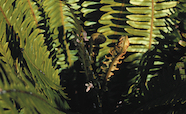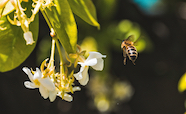Research strengths at the University of Otago highlights fields of research excellence where researchers are changing lives and environments for a better world.
Areas of research strength at Otago

Aotearoa in Asia-Pacific research at Otago
Aotearoa kei Āhia / Te Moananui-a-Kiwa

Identity and culture research at Otago
Te tuakiri me te ahurea

Lifespan research at Otago
Rangahau whāroa

Major health issues research at Otago
Ngā take matua o te hauora

Mātauranga Māori-led research at Otago
Māori knowledges

Research frontiers at Otago
Te haputa o te rangahau

Sustainability research at Otago
Toitūtanga
Research impact in our academic divisions | Te pānga o te rangahau ki ngā wāhanga mātauranga
Across our four academic divisions, researchers contribute considerable impact in business, health, arts and sciences in global and local communities.
Research impact in business
At the Otago Business School researchers are contributing real value to the wider community, business, government, and the not-for-profit sector.
Read expert commentary about rebuilding Aotearoa in the shadow of COVID-19, and find out how we can apply research findings with business and the community:
Otago Business School research
Research impact in health sciences
In the Division of Health Sciences we strive for high quality research that changes the world.
Our researchers are improving people's health, changing local and central government policies, contributing to best practice guidelines, creating spin-off companies to commercialise discoveries, and building capability by training the next generation of scientists.
By forming meaningful relationships with stakeholders, creating strong networks with other researchers and being advocates for policy change we are achieving success for our communities.
Read how researchers are generating benefits including health, societal, cultural, economic or environmental factors at the individual, whānau and community level:
Visit our Health Sciences case studies
Research impact in humanities
Research in the Division of Humanities helps us make sense of ourselves and our communities so that we may better understand our place in a rapidly changing world.
Recent research and creative outputs include:
- Music compositions and performances that enable us to engage with the human experience
- Studies on the realities of migration
- Positive diplomatic consequences of the COVID-19 pandemic
- The historical dimensions of New Zealand's COVID-19 response
- Regulatory reform for human embryo research
- Enhancing indigenous engagement in planning
Division of Humanities website
Research impact in sciences
In the Division of Sciences our business and community engagement activities highlight the range of opportunities and ways we demonstrate research impact with industry and our community.
